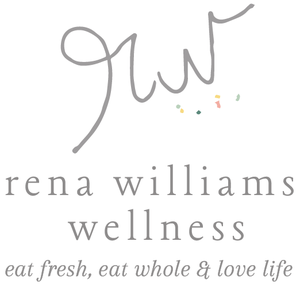You’re making some changes and trying to do all the things. Yet, you’re not seeing the results you want. What could be happening in this case?
Our bodies are filled with metabolic pathways. These pathways are chemical reactions within our cells, helping them communicate with each other. This communication influences how all of our cells, from our brain all the way down to our toes, function and thrive. Sometimes though these messages get crossed and the ideal functioning of these pathways changes or gets diverted.
When Your Body Isn’t Producing Enough Serotonin
Everybody loves a little tryptophan right? You finish a beautiful turkey dinner and shortly after you feel sleepy. This is most likely due to the effect of tryptophan. It's a precursor to serotonin (our feel good neurotransmitter), which is a precursor to melatonin (those beautiful zzz’s). Turkey has considerable amounts of tryptophan.
In an ideal scenario, tryptophan through messaging and pathways, gets metabolized into serotonin. But when our body isn’t functioning well this pathway can be diverted into producing quinolinic acid instead of serotonin. Quinolinic acid is a neurotoxin that affects how our brain and nervous health function. This diversion will show up as depression, anxiety or other neurological imbalances like epilepsy, schizophrenia, Alzheimer’s disease, MS and brain cancer.
What can trigger this diversion?
Inflammation as well as environmental factors like trauma. Chronic low-grade inflammatory responses in the body impact our health in many ways. Our own unique makeup and life experiences will influence how a chronic inflammatory response will present itself. We often think of digestive issues, joint or muscular pain when we hear inflammation. But in some of us, it affects our nervous health causing us to be more prone to anxiety or depression.
There's good news. You can influence the levels of inflammation in your body. There are so many beautiful things you can do to promote healthy pathway function.
Simple Ways to Reduce Inflammation and Optimize Serotonin Production
Western culture has conditioned us into believing there’s one pill for every problem and that nothing else going on in your life is related to your current state. But the truth is when you want to live your most vibrant life, it's going to require some accountability for your choices and paying attention to how you care for yourself.
Some key tools to consider having in your personal health toolkit:
- We are always what we eat. Food is part of the foundation our cells need to thrive and be expressed in their healthiest way possible. Mindful nutritious choices will support you living a vibrant life.
- Keeping your gut health tight ’n right. Everything stems from our digestive health aka our second brain. 90% of the serotonin our body uses is produced in the gut. Our gut bacteria also influences immune health and in turn our inflammation levels.
- Your relationship with yourself and managing that inner dialogue. These two things make up the lens we use to view ourselves and those around us. It determines where we’ll choose to place focus in our day and the meaning we make of situations we are in. This influences cellular expression and if not managed, will create inflammation in the body. Paying attention to your inner dialogue is as important as sipping on some kombucha. ;)
- Moving your body, being in nature, meditating and creating some distance from those racing thoughts. Releasing stress lowers inflammation and puts us in the mode of rest ’n digest (the parasympathetic part of our nervous system). When we’re in this mode it encourages your body to come back to a place of balance (homeostasis).
Now I’d love to hear from you. What's one of your favourite ways to manage your mental health? Share with me in the comments below.
To supporting good nervous health,




